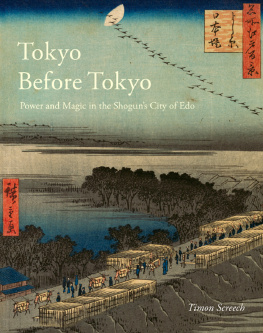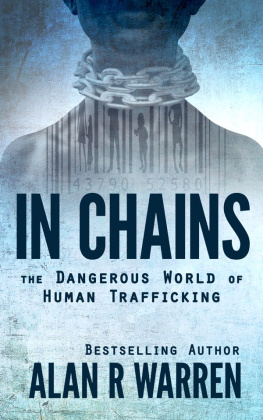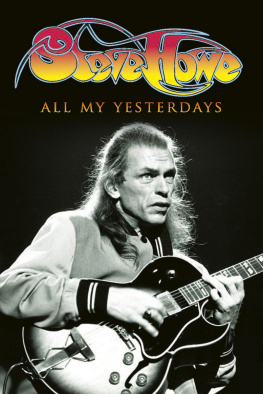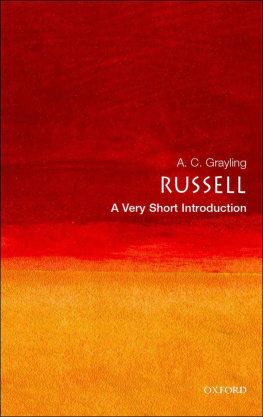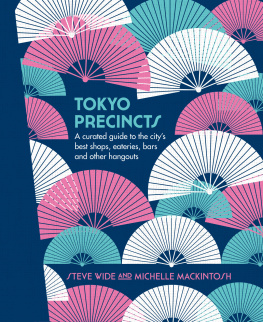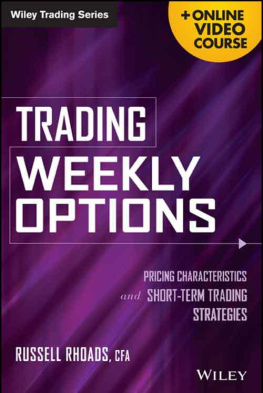Russell Warren Howe - The Hunt for Tokyo Rose
Here you can read online Russell Warren Howe - The Hunt for Tokyo Rose full text of the book (entire story) in english for free. Download pdf and epub, get meaning, cover and reviews about this ebook. year: 1993, publisher: Madison Books, genre: Non-fiction. Description of the work, (preface) as well as reviews are available. Best literature library LitArk.com created for fans of good reading and offers a wide selection of genres:
Romance novel
Science fiction
Adventure
Detective
Science
History
Home and family
Prose
Art
Politics
Computer
Non-fiction
Religion
Business
Children
Humor
Choose a favorite category and find really read worthwhile books. Enjoy immersion in the world of imagination, feel the emotions of the characters or learn something new for yourself, make an fascinating discovery.

- Book:The Hunt for Tokyo Rose
- Author:
- Publisher:Madison Books
- Genre:
- Year:1993
- Rating:5 / 5
- Favourites:Add to favourites
- Your mark:
- 100
- 1
- 2
- 3
- 4
- 5
The Hunt for Tokyo Rose: summary, description and annotation
We offer to read an annotation, description, summary or preface (depends on what the author of the book "The Hunt for Tokyo Rose" wrote himself). If you haven't found the necessary information about the book — write in the comments, we will try to find it.
[A] dramatic, affecting account...Publishers Weekly
The Hunt for Tokyo Rose — read online for free the complete book (whole text) full work
Below is the text of the book, divided by pages. System saving the place of the last page read, allows you to conveniently read the book "The Hunt for Tokyo Rose" online for free, without having to search again every time where you left off. Put a bookmark, and you can go to the page where you finished reading at any time.
Font size:
Interval:
Bookmark:
The Roll Call at Suragadai
ENSIGN GEORGE HENSHAW claimed to have listed all the prisoners at Suragadai, or Bunka. Some of the men were cooks, orderlies, and other camp staff. The following were ordered to perform tasks with Nippon Hoso Kyokai, and many of them were questioned by the CIC, the FBI, or by Allied equivalents.
ASTERITA, Joseph John Ooe), Wake Island civilian, from Brooklyn, New York. Minor radio work and cook.
BRUCE, Lance Corporal Donald Carswell, British army, from Glasgow, Scotland. Typed scripts.
COUSENS, Major Charles Hughes, Australian army, from Sydney. Senior prisoner of the camp. His radio work is described in this book.
COX, Major Willistin Madison, Jr., U.S. Army Air Corps, from Tennessee. Second ranking prisoner. Minor radio duties.
DODDS, Darwin H., Wake Island civilian, from Boise, Idaho. Singer and occasional master of ceremonies on Hinomaru Hour, relieving Provoo and Wisner. Participated in The Postman Calls.
DOOLEY, Warrant Officer John H., Australian army. Wrote commentaries and helped in kitchen.
FUJITA, Sergeant Frank, U.S. Army, from Abilene, Texas. Minor radio duties.
HENSHAW, Ensign George (Buck), U.S. Navy, from Los Angeles. Wrote Three Missing Men series, helped with Saturday Jamboree, spun turntables.
HOBBLITT, Corporal Frederick M., U.S. Army, from San Francisco. Master of ceremonies, and read POW messages on The Postman Calls. Worked under Ince, who wrote and directed the program. (Misdescribed in the FBI files as a marine.)
INCE, Captain Wallace Ellwell (misspelled Elwell by Henshaw and Ewell by some others). Radio name: Ted Wallace. His NHK work is described in this book.
KALBFLEISCH, Second Lieutenant Edwin, Jr. Wrote and read political commentaries of three or four minutes duration, then refused to cooperate.
LIGHT, Technical Sergeant Newton, U.S. Army, from Roanoke, Virginia. According to Henshaw, he was the stenciling man and he prepared all the scripts after they had been written in rough draft form by the various POW writers.
McNAUGHTON, Lieutenant John M., British army, from London. Initially wrote commentaries, then radio dramatizations of stories.
MARTINEZ, Private First Class James Gutierrez, U.S. Army, from Kingsville, Texas. Had minor radio duties and helped in kitchen.
MARTINEZ, Private First Class Ramon Perez, from Laredo, Texas. Disc jockey on Spanish-language program, Saturday Jamboree. (Not related to James, above.)
ODLIN, Technical Sergeant Walter C., U.S. Army, from Andover, New Hampshire. Wrote commentaries.
PARKYNS, Flight Sergeant Kenneth G., Royal Australian Air Force, from Liverpool, New South Wales. Some writing; appeared on Australian Hour; assistant chief camp cook.
PEARSON, Corporal Harry, British army. Scriptwriter and musician. Helped with Saturday Jamboree.
PROVOO, Sergeant John David, U.S. Army. Chief animator of Hinomaru Hour and Humanity Calls.
QUILLE, Larry W, Wake Island civilian, from La Grande, Oregon. Wrote scripts, but was later relegated to the kitchen.
RICKERT, Corporal Albert Powhatan, U.S. Marines, from Louisville, Kentucky. Typed scripts for Ince and others.
SHATTLES, Stephen Herman, Wake Island civilian, from New Orleans (and Hattiesburg, Mississippi). Wrote and acted in radio dramas, read commentaries, and did mimeographing.
SHENK, Warrant Officer Nicolas, Army of the Netherlands. Did some writing. Chief camp cook.
SMITH, Radioman First Class Frederick Ferguson, U.S. Navy. Wrote commentaries and typed scripts.
STREETER, Mark Lewis (or Louis). Wake Island civilian, from Ogden, Utah. Wrote commentaries and dramas and later had his own program called Enerjocracy.
WILLIAMS, Henry Charles Ralph Fulford (George). British Colonial Service. Refused to cooperate.
WISNER, Second Lieutenant Jack K. (misspelled Wisener by Henshaw), U.S. Army Air Corps (Henshaw mistakenly says Army). Alternated as master of ceremonies on The Postman Calls, and with Provoo on Hinomaru Hour and Humanity Calls, for which he wrote and read a few assigned commentaries.
After the war, Corporal Pearson used the skills acquired at NHK to get a job as a reporter in Cape Town, South Africa. Quilles work, rejected by the Japanese, enabled him to become a reporter on the Fullerton (Texas) News-Tribune. Provoo was convicted of treason but acquitted on appeal; he spent many years in mental hospitals. Streeter was imprisoned, but charges of treason were finally dropped. The wandering Dutchman Shenk did not go home but stayed on in Tokyo to work for the War Crimes Department of the U.S. Eighth Army. All of the American officers who worked for Tokyo radio were promoted on their return. Corporal Rickert was made a marine officer.

BY THE SAME AUTHOR
The Light and the Shadows
(short stories)
Behold, the City
(a novel)
Theirs the Darkness:
A Journey through Equatorial Africa
Black Star Rising:
A Journey through West Africa
Black Africa:
Vol. I From Pre-History to the Eve of the Colonial Era
Vol. II The Colonial Era and Modern Times
The African Revolution
Along the Afric Shore:
An Historic Review of Two Centuries of U.S. Relations with Africa
The Power Peddlers:
How Lobbyists Mold Americas Foreign Policy
(with Sarah Hays Trott)
Weapons:
The International Game of Arms, Money and Diplomacy
Mata HariThe True Story
The Koreans:
Passion and Grace
Flight of the Cormorants
(a novel)
Copyright 1990 by Russell Warren Howe
All rights reserved.
No part of this book may be reproduced in any form or by any electronic or mechanical means, including information storage and retrieval systems, without written permission from the publisher, except by a reviewer who may quote passages in a review.
Published by Madison Books
4720 Boston Way
Lanham, Maryland 20706
3 Henrietta Street
London WC2E 8LU England
Distributed by National Book Network
The paper used in this publication meets the minimum requirements of American National Standard for Information SciencesPermanence of Paper for Printed Library Materials, ANSI Z39.481984. 
Manufactured in the United States of America.
5 4 3 2 1
Library of Congress Cataloging-in-Publication Data
Howe, Russell Warren, 1925
The hunt for Tokyo Rose / Russell Warren Howe.
p. cm.
Includes bibliographical references.
1. Tokyo Rose, 1916
2. United StatesBiography.
3. Japanese AmericansBiography.
4. World War, 19391945Japan.
5. Trials (Treason)CaliforniaSan Francisco.
I. Title.
CT275.T717H68 1989
940.54'88752'092dc20 8935273 CIP
[B]
ISBN 0819174564 (alk. paper)
British Cataloging in Publication Information Available
THE AUTHORS OF THE CONSTITUTION of the United States were aware of the excesses and injustice that often flow from the emotional accusation, TREASON. James Wilson of Pennsylvania, one of the wisest and most influential delegates at the convention, insisted on defining this ultimate crime against the state in the charter. He hoped to prevent political abuses of power against government-proclaimed enemies of the patria. He wanted the new nation to avoid the numerous and dangerous excrescenses that disfigured the English law of treason.
Font size:
Interval:
Bookmark:
Similar books «The Hunt for Tokyo Rose»
Look at similar books to The Hunt for Tokyo Rose. We have selected literature similar in name and meaning in the hope of providing readers with more options to find new, interesting, not yet read works.
Discussion, reviews of the book The Hunt for Tokyo Rose and just readers' own opinions. Leave your comments, write what you think about the work, its meaning or the main characters. Specify what exactly you liked and what you didn't like, and why you think so.

